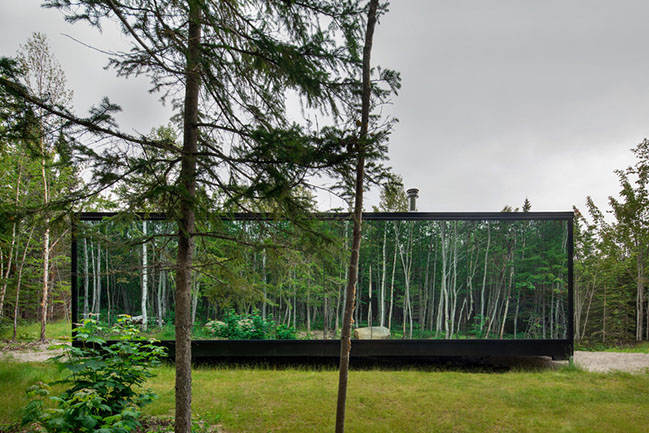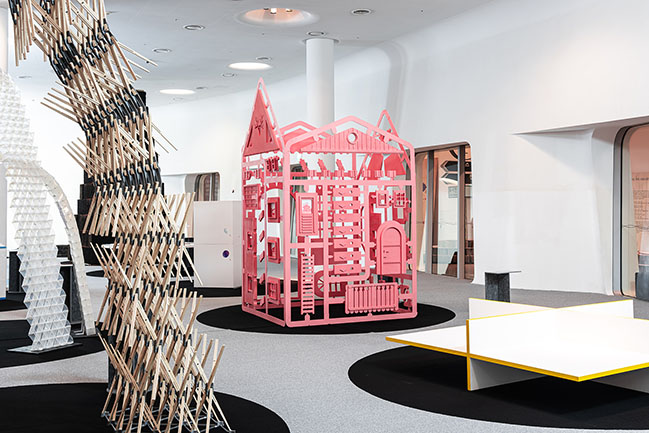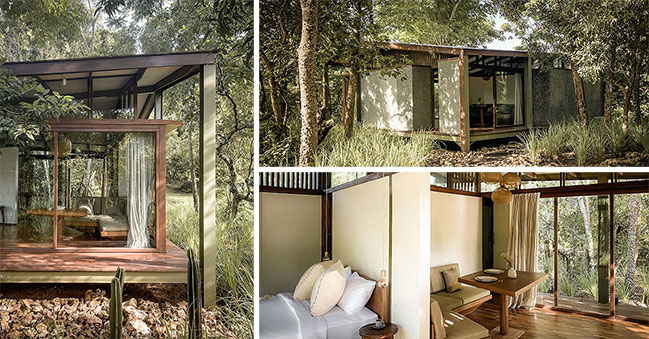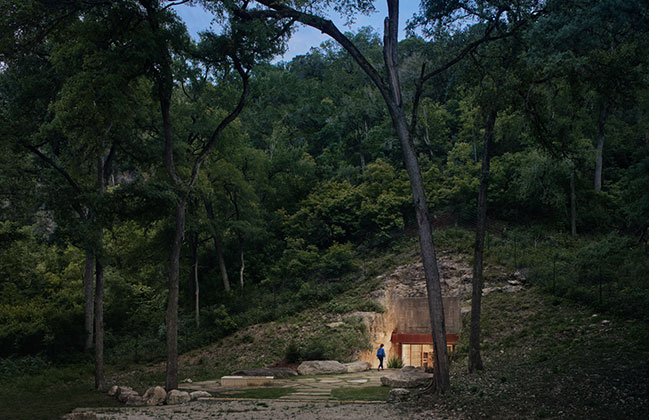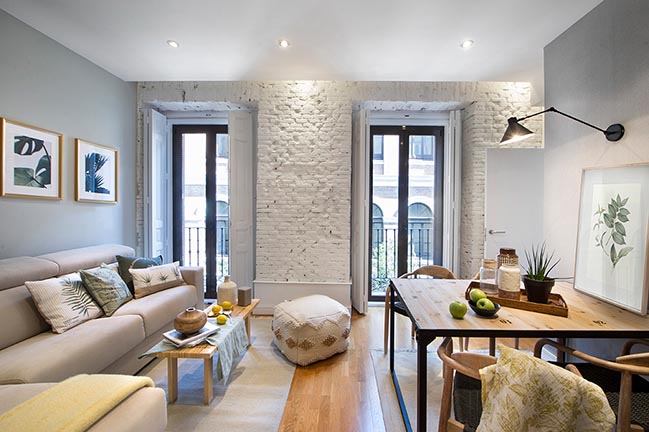09 / 22
2021
Architectural drawings from the 1930s are dusted off in Snøhetta’s recent proposal for the reconstruction of the venerable harbor bath Knubben in Arendal, Norway. The iconic facility is set to be revived as a gift to the town people in 2024...
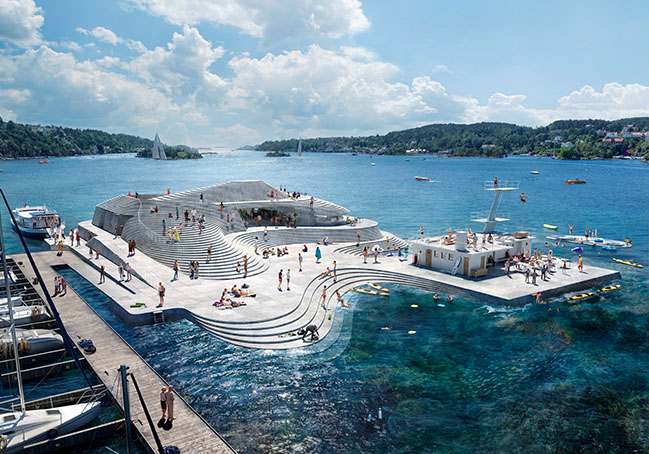
> Snøhetta-designed Le Monde Group Headquaters opens in Paris
> Snøhetta Completes its 4th Energy Positive Powerhouse in Telemark
From the architect: In 1937, a harbor bath was built on Knubben, a 750 square meter skerry just outside of Arendal city center. Located in Galtesund, between the islands Tromøy and Hisøy, the public facility boasted a ten-meter diving platform, a children’s pool, changing rooms and a kiosk. Knubben is known as one of the clearest examples of functionalistic architecture in Norway, and joins the ranks of many recreational compounds built in this style from the same period.
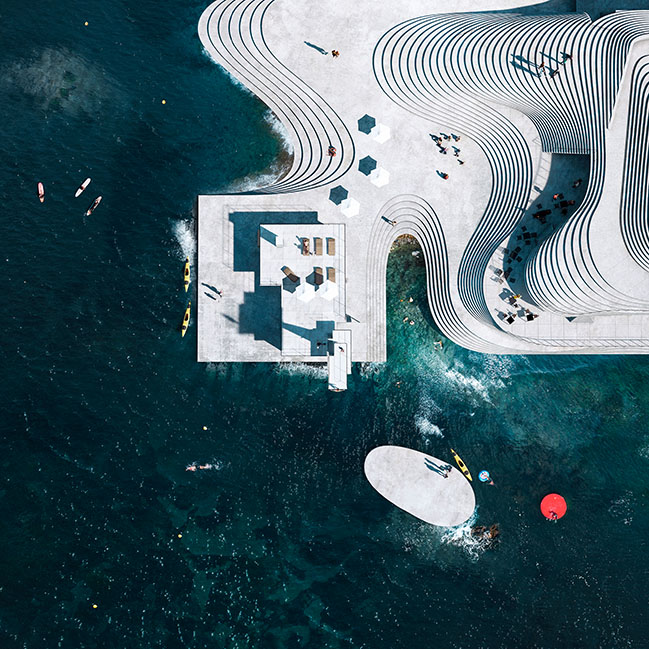
An original design by architect Ketil Ugland, the facility was used by Arendal Swimming Club for diving competitions, swimming training and other aquatic activities. In 1947, the harbor bath closed its doors before being taken back into use during the 1960s, this time as a jazz club. With its slender and clean lines, Knubben was a small yet elegant example of the modernist spirit. After substantial decay however, the diving platform was demolished by the Norwegian Armed Forces in the 1980s.
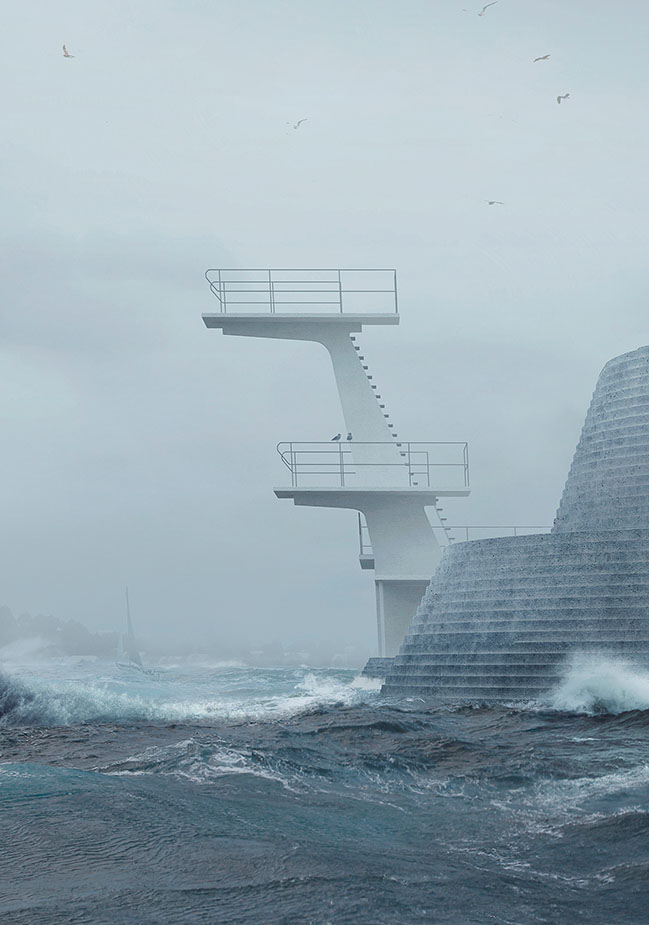
In 2018, Snøhetta was commissioned to revitalize the facility with a feasibility study. As such, the new Knubben is interpreted as an architectural response to the past. It conserves vital parts, while emphasizing the becoming of Arendal as an urban destination for both national and international audiences.
While the original idea was for Knubben to be restored to its original glory, it became clear that the facility would need major modernization in order for the island to become a multi-use site for more than just aquatic activities. Therefore, the new part of Knubben will rise as a structure founded on steel core piles, further broadening the expanse and possibilities of the island.
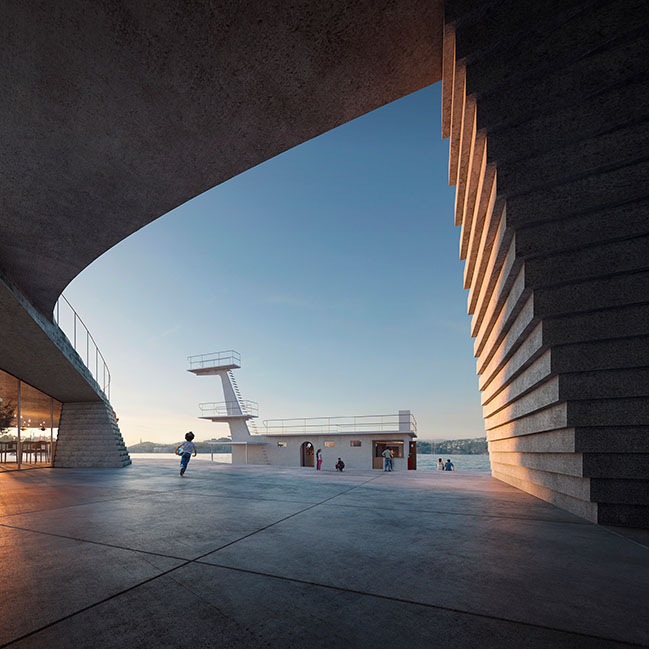
The new Knubben is a man-made structure with architecture that draws inspiration from the shapes we find in the islets and skerries along the Norwegian coast. It will resemble a block of stone shaped during the Last Glacial Period, characterized by abraded shapes where soft concave and convex walls form cavities in the landscape. To represent the terrain as accurately as possible, the construction will consist of horizontal layers following the contour lines of a map.
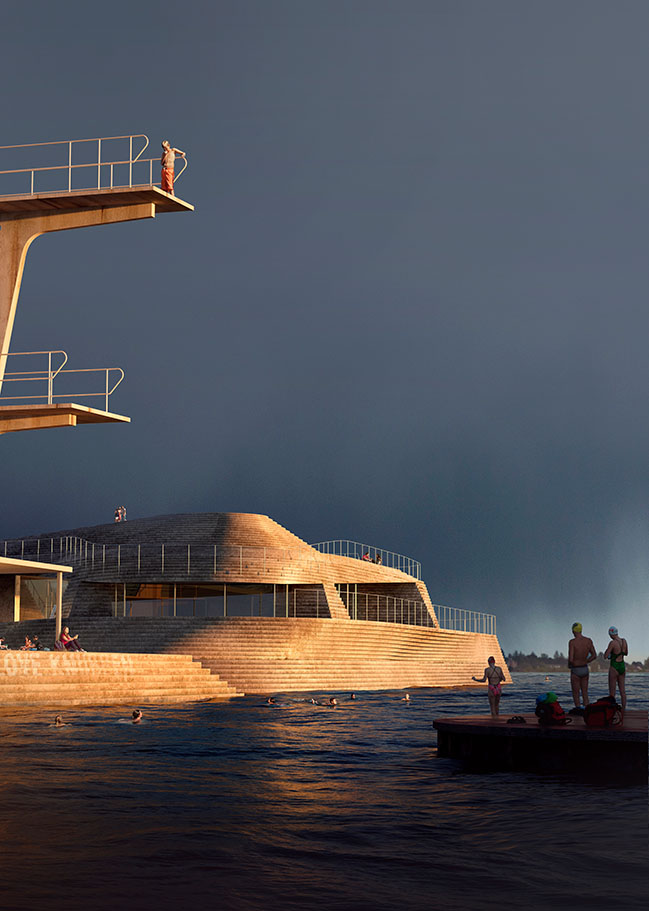
As a robust skerry that can withstand rough conditions, Knubben will be a lively meeting place that can be used all year round. The facility will accommodate an open-air stage alongside an amphitheater, creating a setting for all kinds of performances. In addition, Knubben will house indoor areas for both a restaurant and more intimate concerts.
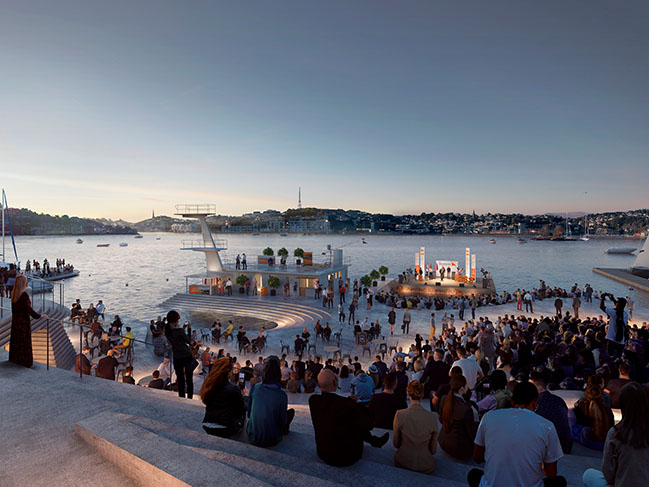
As we become increasingly urban, we long for contact with nature. Knubben will be a social meeting place that provides a sensation of closeness to the sea, and will serve as a backdrop to a plethora of activities and experiences. It will be a soothing spot in the sun on a hot summer evening, a hub for cultural events, and a place to enjoy a good meal after taking an icy bath on a cold winter’s day.
Architect: Snøhetta
Location: Arendal, Norway
Year: 2019 - 2023
Collaborators: Stiftelsen Knubben Kultur og Aktivitetssenter
Images: Snøhetta / Aesthetica Studio
Snøhetta revives traditional harbor bath Knubben
09 / 22 / 2021 Architectural drawings from the 1930s are dusted off in Snøhetta’s recent proposal for the reconstruction of the venerable harbor bath Knubben in Arendal, Norway. The iconic facility is set to be revived as a gift to the town people in 2024...
You might also like:
Recommended post: Egue y Seta designs three rental apartments in Madrid
